As a lover of music, I have always believed in the profound impact that music can have on our lives.
But did you know that music can have a profound impact on a child’s development? It’s not just about enjoying a catchy tune; it goes much deeper than that.
In fact, research has shown that music can enhance cognitive skills, stimulate emotional expression, improve social interactions, and even enhance physical coordination.
So, let’s dive into the fascinating world of music and explore the cognitive, emotional, social, and physical benefits it offers to children.
Key Takeaways
- Music boosts cognitive development, improving problem-solving skills, spatial intelligence, critical thinking, and memory retention.
- Exposure to music from an early age positively impacts emotional development and helps children identify and express their emotions effectively.
- Engaging with music enhances children’s communication skills, non-verbal communication, empathy, and emotional intelligence.
- Music enhances fine motor skills through rhythmic patterns, instrument manipulation, and improves hand-eye coordination.
The Cognitive Advantages of Music in Child Development
Engaging with music enhances my cognitive development. It improves problem-solving skills, critical thinking, and memory retention. Numerous studies have shown the benefits of music on problem-solving skills, critical thinking, and memory retention in child development. When children engage with music, they are required to actively participate, stimulating their brains and enhancing cognitive abilities.
The process of analyzing and understanding musical patterns and structures promotes critical and analytical thinking. This skill can transfer to other areas of life. Additionally, music enhances spatial intelligence, an important skill for tasks such as reading maps and solving puzzles. Children who engage with music have been found to have enhanced spatial reasoning skills.

Furthermore, exposure to music and active participation in musical activities positively impact language skills, particularly in reading and vocabulary acquisition. Music has a profound influence on cognitive development. It is a valuable tool for enhancing problem-solving skills, critical thinking, and memory retention in children.
Emotional Growth Through Music in Child Development
Listening to different types of music has helped me identify and express my emotions effectively. Music has a profound impact on emotional expression and self-regulation in child development.
Engaging with music provides a safe outlet for children to express their feelings and navigate through their emotions. Certain types of music have a calming effect on children, reducing stress and anxiety. Through music, children can explore a range of emotions and learn how to regulate their emotional responses.
Research has shown that exposure to music from an early age positively influences emotional development, helping children develop the skills necessary to understand and manage their emotions. Music acts as a powerful tool for emotional growth, providing children with the means to express themselves and develop self-regulation skills.
Music’s Impact on Social Skills in Child Development
Participating in group music activities has helped me develop stronger communication skills and improved my ability to cooperate with others. Music provides a platform for non-verbal expression, improving non-verbal communication. Engaging in group music activities promotes turn-taking and cooperation, fostering teamwork abilities. Through music, I have learned the importance of listening to others and working together towards a common goal. The collaborative nature of music-making requires effective communication and active participation from everyone involved. The table below highlights the key ways in which music enhances communication skills and fosters teamwork abilities:
| Enhancing Communication Skills | Fostering Teamwork Abilities |
|---|---|
| Improves verbal and non-verbal communication | Promotes collaboration and cooperation |
| Encourages active listening | Enhances problem-solving skills |
| Develops empathy and emotional intelligence | Builds trust and mutual respect |
Engaging in music activities has been instrumental in my personal growth, allowing me to develop essential social skills that are valuable in various aspects of life.
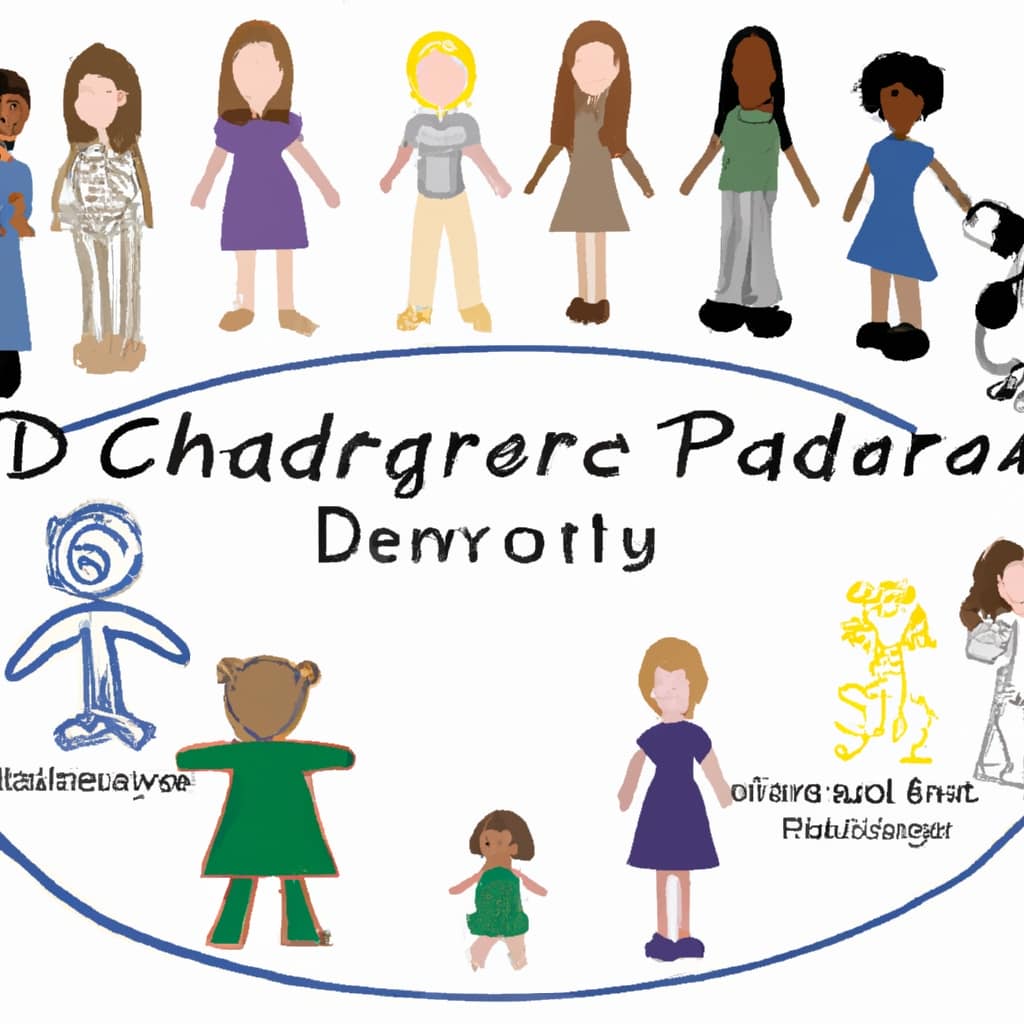
Enhancing Fine Motor Skills Through Music in Child Development
Playing musical instruments has improved my coordination and dexterity, enhancing my fine motor skills. It’s fascinating to see how instrument manipulation requires precise movements and finger coordination.
Here are four ways that music enhances fine motor development:
-
Hand-eye coordination: Playing instruments like the piano or guitar involves synchronizing hand movements with visual cues, improving coordination between the hands and eyes.
-
Finger dexterity: The intricate finger movements required to play instruments strengthen fine motor skills, enabling more precise control and nimble finger movements.
-
Instrument manipulation: Holding and playing instruments requires grasping, finger isolation, and precise control, which enhance overall fine motor development.
-
Transferable skills: The fine motor skills developed through music can transfer to other activities, such as writing, drawing, or engaging in sports.
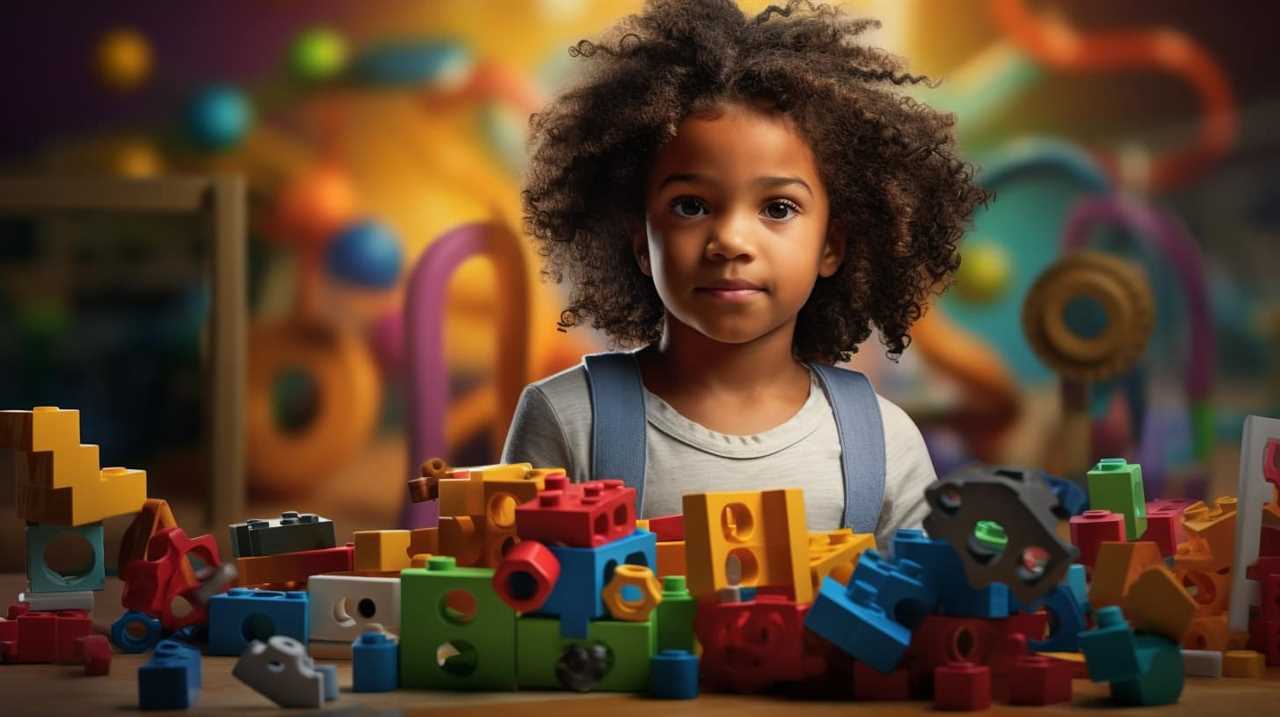
Music’s Influence on Academic Performance in Child Development
Attending music classes and actively engaging with the curriculum have significantly improved my academic performance. The impact of music on academic motivation is undeniable. When I immerse myself in music, I feel a surge of energy and enthusiasm for learning.
The correlation between music and memory retention is remarkable. As I listen to melodies and rhythm, my brain becomes more alert and focused, enhancing my ability to retain information. The repetition and patterns in music reinforce my memory, making it easier to recall facts and concepts.
Music has become a powerful tool in my academic journey, boosting my motivation and sharpening my memory. It has truly transformed my approach to learning and has had a profound impact on my overall academic performance.
The Role of Music in Cultural Sensitivity and Diversity Awareness
As we explore the power of music in child development, we now turn our attention to the role of music in fostering empathy and promoting cross-cultural understanding.
Music’s role in fostering empathy:
- Engaging with music allows children to connect with and understand the emotions of others.
- Through music, children can experience different perspectives and develop a sense of compassion.
- Music encourages empathy by providing a platform for emotional expression and connection.
- Active participation in music activities, such as singing or playing instruments, promotes empathy development.
The impact of music on cross-cultural understanding:

- Exposure to different musical styles and traditions broadens children’s understanding of diverse cultures.
- Music challenges stereotypes and promotes appreciation for different perspectives.
- Listening to music in different languages sparks curiosity and enhances language acquisition.
- Music showcases the rich tapestry of human expression and cultural diversity.
Music’s Positive Effects on Emotional Well-being in Child Development
Listening to music has a profound impact on my emotional well-being, enhancing my mood, reducing stress, and bringing me joy.
Music therapy for emotional regulation is a powerful tool that harnesses the therapeutic benefits of music to promote emotional well-being and self-expression. Numerous studies have shown that music has the ability to evoke and enhance emotional expression in individuals, helping them identify and express their emotions effectively.
Music provides a safe outlet for self-expression, allowing individuals to explore and convey their feelings in a non-threatening way. Additionally, music plays a crucial role in self-expression and identity development. Through music, individuals can connect with their emotions, experiences, and personal narratives, fostering a sense of self and promoting a deeper understanding of one’s identity.
Whether through listening, singing, or playing an instrument, music has the ability to touch our souls and uplift our spirits, making it a powerful tool for emotional well-being and personal growth.
The Physical Benefits of Music in Child Development
Playing musical instruments has improved my coordination, dexterity, and hand-eye coordination. Music therapy has been shown to have numerous physical benefits for child development. Here are four ways in which music enhances physical coordination:
-
Motor Skills: Engaging with music through playing instruments requires precise movements and coordination. This helps develop fine motor skills and improves overall dexterity.
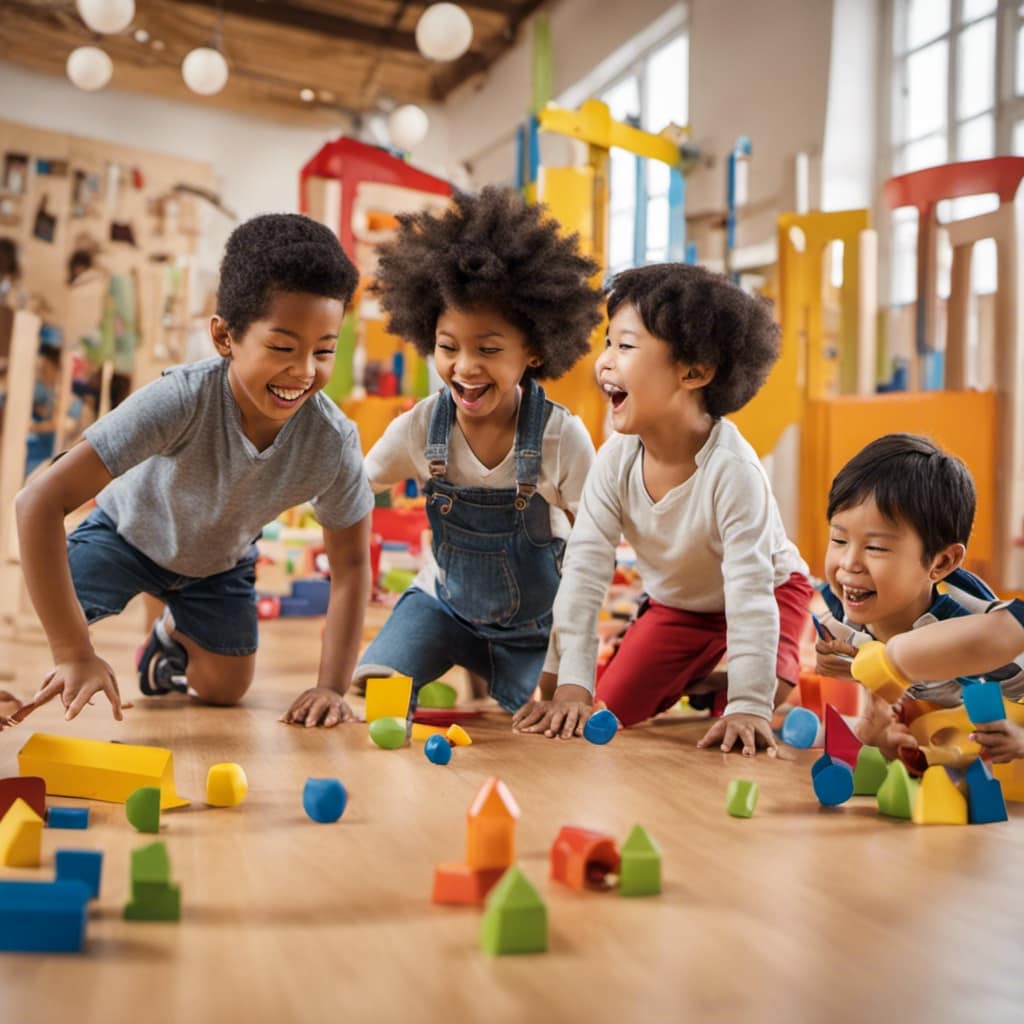
-
Balance: Many musical activities, such as dancing or marching to the beat, require maintaining balance and coordination. Regular participation in music-related movements can improve balance over time.
-
Hand-Eye Coordination: Playing instruments like the piano or guitar requires synchronizing hand movements with visual cues. This enhances hand-eye coordination and improves the ability to perform complex tasks.
-
Gross Motor Skills: Music therapy often involves activities that require large muscle movements, such as dancing or playing drums. These activities can improve gross motor skills and overall physical coordination.
Music Education as a Pathway to Personal Growth and Success
Engaging with music education has opened doors to personal growth and paved the way for my success. The power of music in child development is evident not only in its cognitive, emotional, and social benefits but also in its therapeutic effects.
Music has been used as a form of therapy for individuals with various conditions, such as autism and ADHD, to improve their communication and attention skills. Moreover, research has shown that music has a profound impact on brain development. It stimulates areas of the brain responsible for language processing, memory, and emotional regulation.
By engaging in music education, I have not only honed my musical abilities but also strengthened my cognitive skills, improved my emotional well-being, and developed a deeper understanding of myself and others.
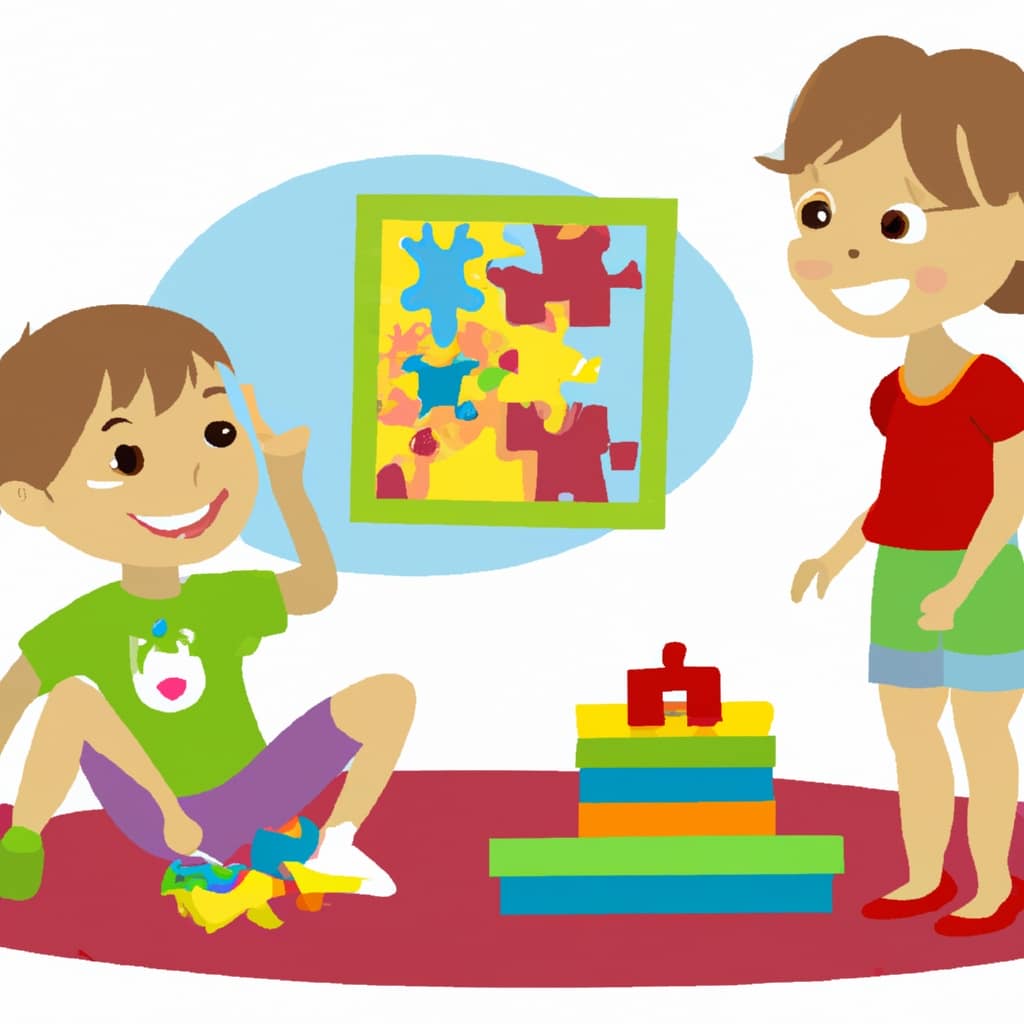
Music truly has the power to shape and transform lives.
Frequently Asked Questions
What Are Some Specific Ways That Music Can Enhance Problem-Solving Skills in Children?
Music enhances problem-solving skills in children by promoting critical thinking and analytical abilities. Engaging with music requires active participation and cognitive processing, allowing children to develop effective problem-solving techniques.
How Does Exposure to Music From an Early Age Impact a Child’s Emotional Development?
Exposure to music from an early age greatly impacts a child’s emotional development. It influences behavior and plays a crucial role in self-expression. Music has the power to evoke and enhance emotional expression in children.
Can Participating in Group Music Activities Help Improve a Child’s Communication Skills? How?
Participating in group music activities can improve a child’s communication skills by promoting social interactions and boosting self-confidence. Through collaboration and shared experiences, children learn to express themselves effectively and develop stronger interpersonal connections.
What Are Some Examples of Fine Motor Skills That Can Be Developed Through Engaging With Music?
Engaging with music develops fine motor skills, such as finger movements and instrument manipulation. It enhances hand-eye coordination and improves physical coordination, motor skills, and balance. Music provides a platform for physical self-expression and creative control.
How Does Music Positively Influence Academic Motivation in Children?
Music positively influences academic motivation in children by improving cognitive development and enhancing overall academic performance. Engaging with music enhances critical thinking, memory retention, and reasoning skills, creating a positive learning environment that promotes emotional regulation and creativity.
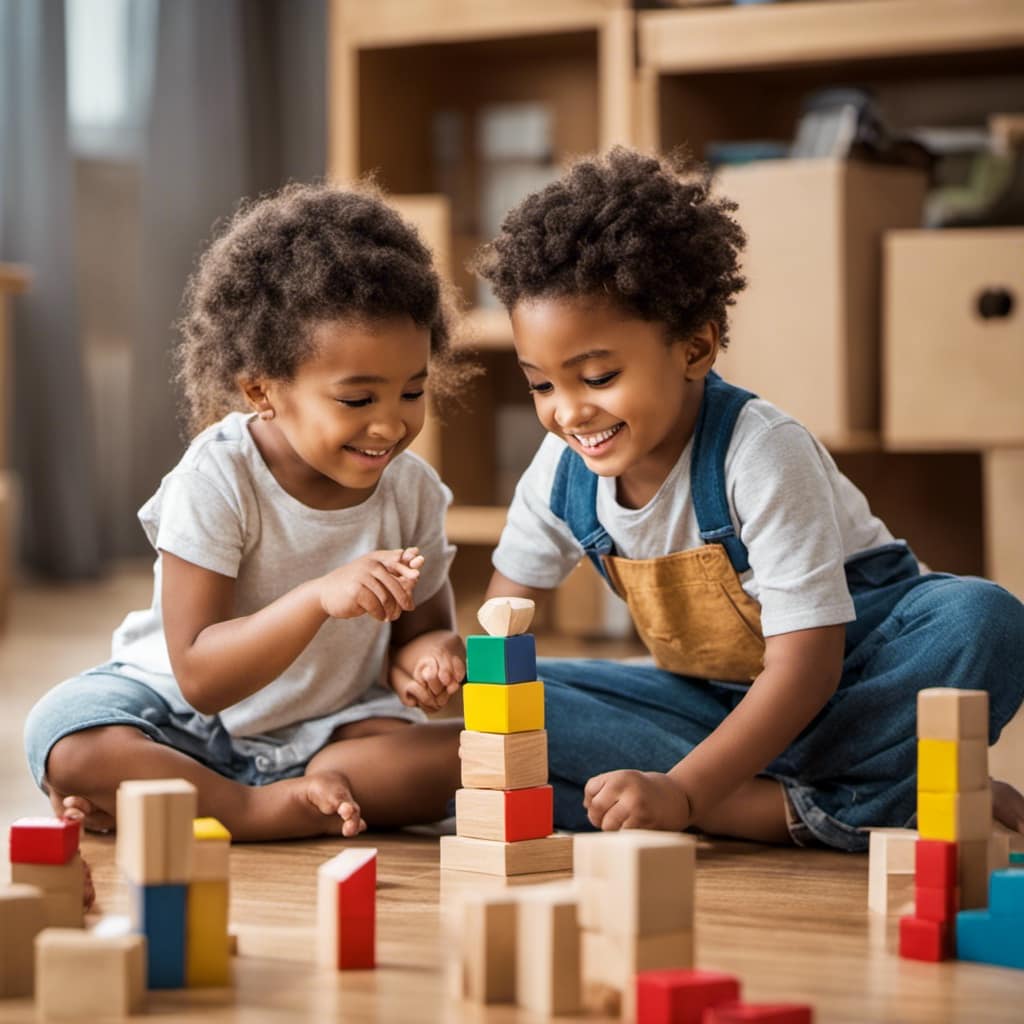
Conclusion
In conclusion, the power of music in child development cannot be overstated. It is a catalyst for cognitive growth, emotional well-being, social connections, and physical coordination.
From enhancing problem-solving skills to promoting empathy and teamwork abilities, music has a profound impact on various aspects of a child’s development. As a knowledgeable and authoritative voice, I can confidently affirm that the evidence supports the numerous benefits of music in shaping young minds.
So let us embrace the harmonious journey of music and watch our children thrive.










